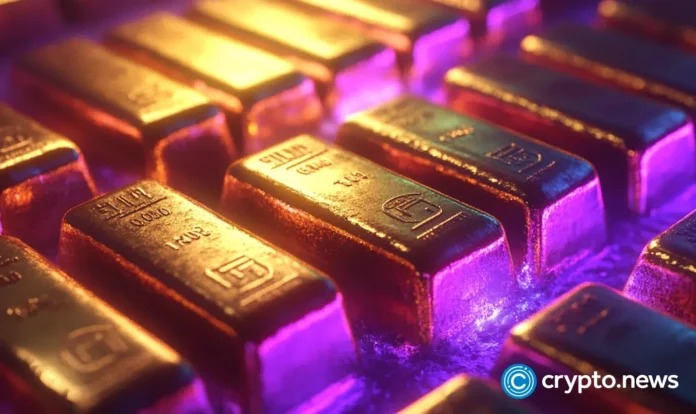The Dawn of De-Dollarization: How Gold and Bitcoin Are Redefining Reserves
Imagine a world where the US dollar is no longer the undisputed king of currencies. Sounds far-fetched? Think again. According to Blackrock’s latest report, de-dollarization is becoming a reality, driven by geopolitical tensions, inflation, and dwindling trust in US debt. This seismic shift is prompting central banks to rethink their reserve strategies, with gold and Bitcoin emerging as unlikely heroes.
A New Era for Gold
Central banks are buying gold at a record pace, with official stocks reaching levels not seen in over 50 years. In 2024, they purchased over 1,000 tons of gold, more than twice the average annual total of the past decade. This gold rush is being driven by emerging countries like Azerbaijan, China, and Iran, which are seeking to protect their reserves from sanctions and currency volatility. The gold price has responded in kind, reaching an all-time high of almost $3,500 per troy ounce in April.
Central Banks Join the Gold Rush
The central banks’ love affair with gold shows no signs of abating. In the first quarter of 2025, they added a whopping 244 tons to their reserves, with exchange-traded funds (ETFs) connected to gold attracting inflows of almost $30 billion. This surge in demand has led to a sharp reversal from the era of net sales, which began in the late 1990s. Today, central banks account for almost 25% of global gold demand, with their purchases grasping a prize more than five times the ETF inflows.
Bitcoin’s Rise to Prominence
While gold remains the core reserve asset, Bitcoin is increasingly being discussed in sovereign reserve circles. The Czech National Bank has initiated a formal review of Bitcoin’s potential as part of its reserves, with the governor proposing that up to 5% of the bank’s portfolio could be allocated to the cryptocurrency. Similarly, campaigns in Switzerland have called for the Swiss National Bank to consider a modest Bitcoin allocation of 1-2% of their investments.
Governments Take the Plunge
Some governments are already taking the plunge, setting up strategic Bitcoin reserves outside of the traditional central bank framework. The US government has formalized a strategic Bitcoin reserve, placing around 200,000 confiscated Bitcoins on a non-traditional account. Texas has followed suit, allocating $10 million for its own Bitcoin reserve, while Pakistan has announced plans to set up a sovereign Bitcoin reserve as part of its Ministry of Finance.
Regulatory Clarity and Growing Legitimacy
The regulatory landscape for Bitcoin is becoming increasingly clear, with the US passing the Clarity Act and the Genius Act, which define digital assets according to federal law. This newfound clarity has contributed to Bitcoin’s growing legitimacy, with institutional inflows exceeding $50 billion and the cryptocurrency’s price reaching an all-time high of over $123,000. As regulatory clarity continues to improve, Bitcoin’s case as a mature asset with potential use as a store of value is becoming increasingly compelling.
In conclusion, the dawn of de-dollarization is upon us, with gold and Bitcoin redefining the reserve landscape. As central banks and governments continue to diversify their reserves, one thing is clear: the future of money is becoming increasingly decentralized, and Bitcoin is poised to play a starring role.

